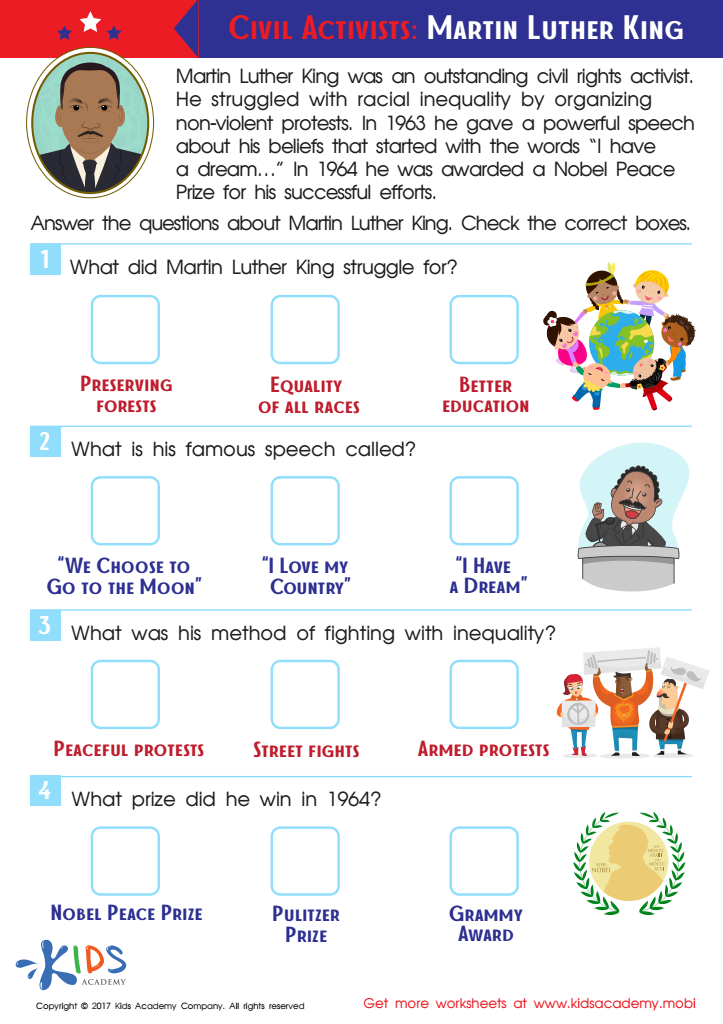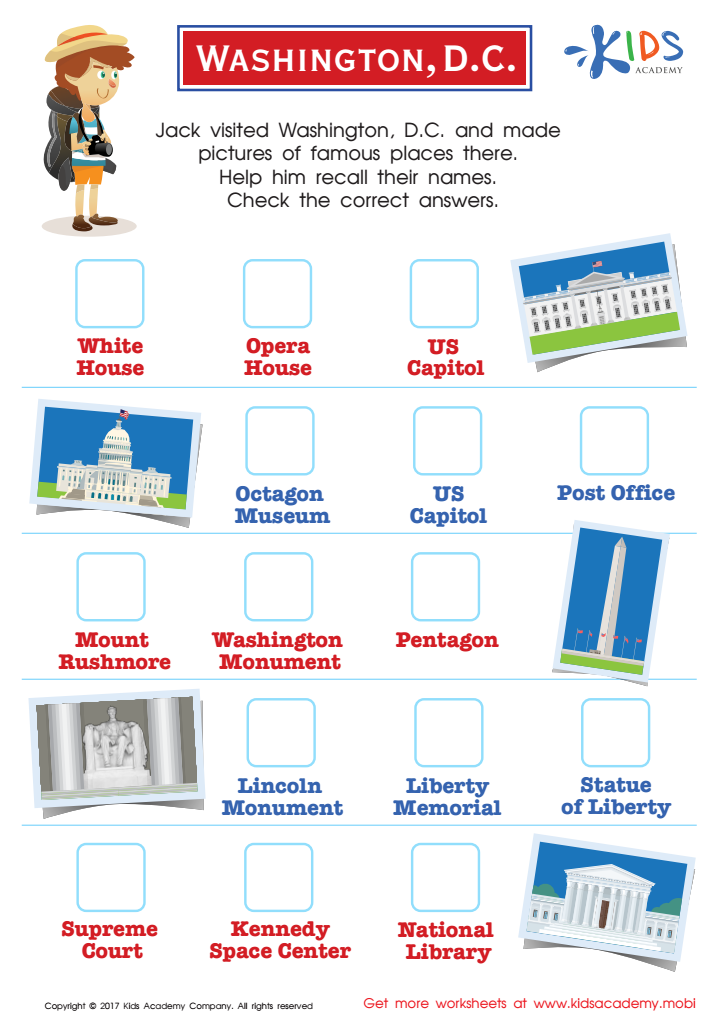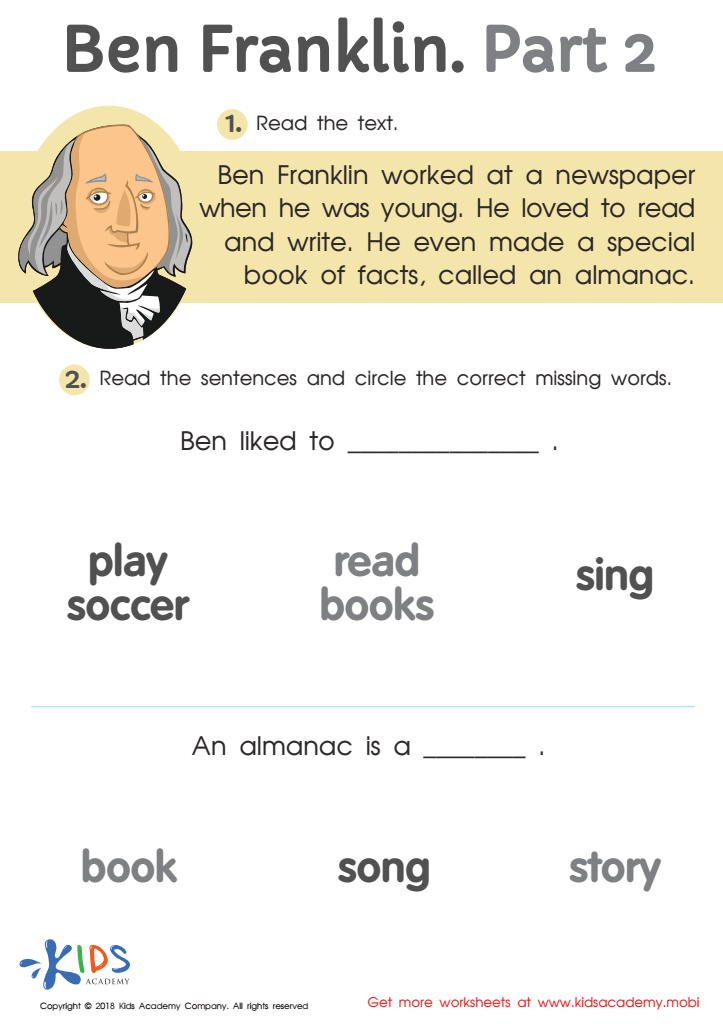Historical Knowledge Normal Governance and Civics Worksheets for Ages 5-9
4 filtered results
-
From - To
Our "Historical Knowledge Normal Governance and Civics Worksheets for Ages 5-9" seamlessly blend engaging activities with essential learning. Designed to introduce young learners to pivotal moments in history, governance structures, and civic responsibilities, these worksheets aim to foster a deep understanding and appreciation for our past and present societal systems. Crafted by experts in early childhood education, they encourage critical thinking and active participation. Ideal for both classroom and at-home learning, these resources will inspire curiosity, promote knowledge retention, and prepare children to become informed, responsible citizens. Ignite a passion for history and civics with our thoughtfully designed worksheets.


White House Worksheet


Martin Luther King Worksheet


Washington D.C. Printable Worksheet


Ben Franklin Part 2 Worksheet
Parents and teachers should care about imparting historical knowledge, normal governance, and civics to children aged 5-9 because these foundational years are critical for shaping informed, responsible future citizens. Early exposure to history helps young minds understand their cultural heritage and recognize critical events and figures that have shaped society. Engaging with historical stories can spark curiosity, empathy, and a better comprehension of different perspectives.
Learning about basic governance helps children grasp the significance of community roles, the importance of rules, and fairness. It lays the groundwork for understanding how contributing positively to society works and fosters respect for institutions. Understanding civics ensures that children learn about their rights and responsibilities, thereby encouraging active participation in their own communities and instilling a sense of duty toward societal issues.
Moreover, incorporating these subjects into early education helps develop critical thinking and decision-making skills. Children learn to ask questions, analyze information, and discern the difference between historically accurate narratives and misinformation. This is crucial in a world increasingly filled with biased information. By embedding demographic literacy and civic responsibility at a youthful age, we build a generation of thoughtful, engaged, and well-informed citizens ready to contribute actively and positively to the democratic process.
 Assign to My Students
Assign to My Students










